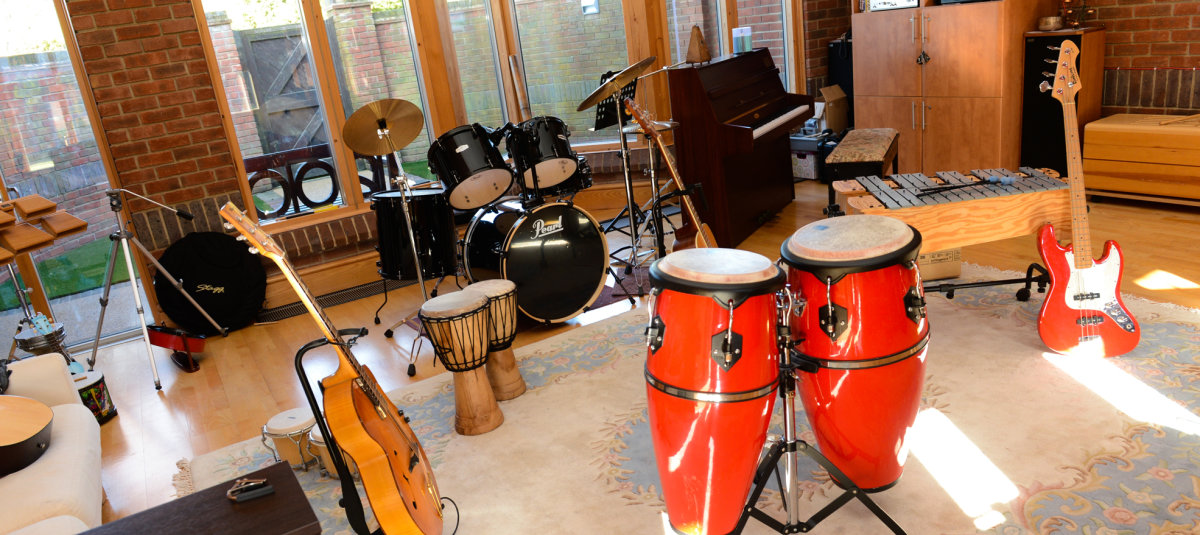

Everyone! We can support your whole family, friends and carers as well as your child. We might even encourage you to take part with your child as this time spent together – where the main focus is not a medical one – is often refreshing. Brothers and sisters can also benefit from having their own music therapy sessions, too.
At the hospice, schools and patient’s homes.
We have a whole room full of musical instruments for you to choose from, including electric and acoustic guitars, piano, a drum kit and xylophone.

Don’t worry – you don’t need to. In a music therapy session, the focus is on improvising, so there are no set rules or pieces of music to practice. Sessions can include writing songs, making music CDs, singing, family work, memory making and simply listening to music.
Our music therapist, who is accredited by the British Association of Music Therapy and registered with the Health Professional Council.
If your child is currently being supported by us, please speak to a member of staff or contact our music therapist Nathan on 01582 497850 or email nvanstonehowe@keech.org.uk.
Legal notice © 2024 Keech Hospice Care, Great Bramingham Lane, Streatley, Luton, LU3 3NT. Registered Charity Number 1035089. A company limited by a guarantee. Registered company in England and Wales (no. 02904446).